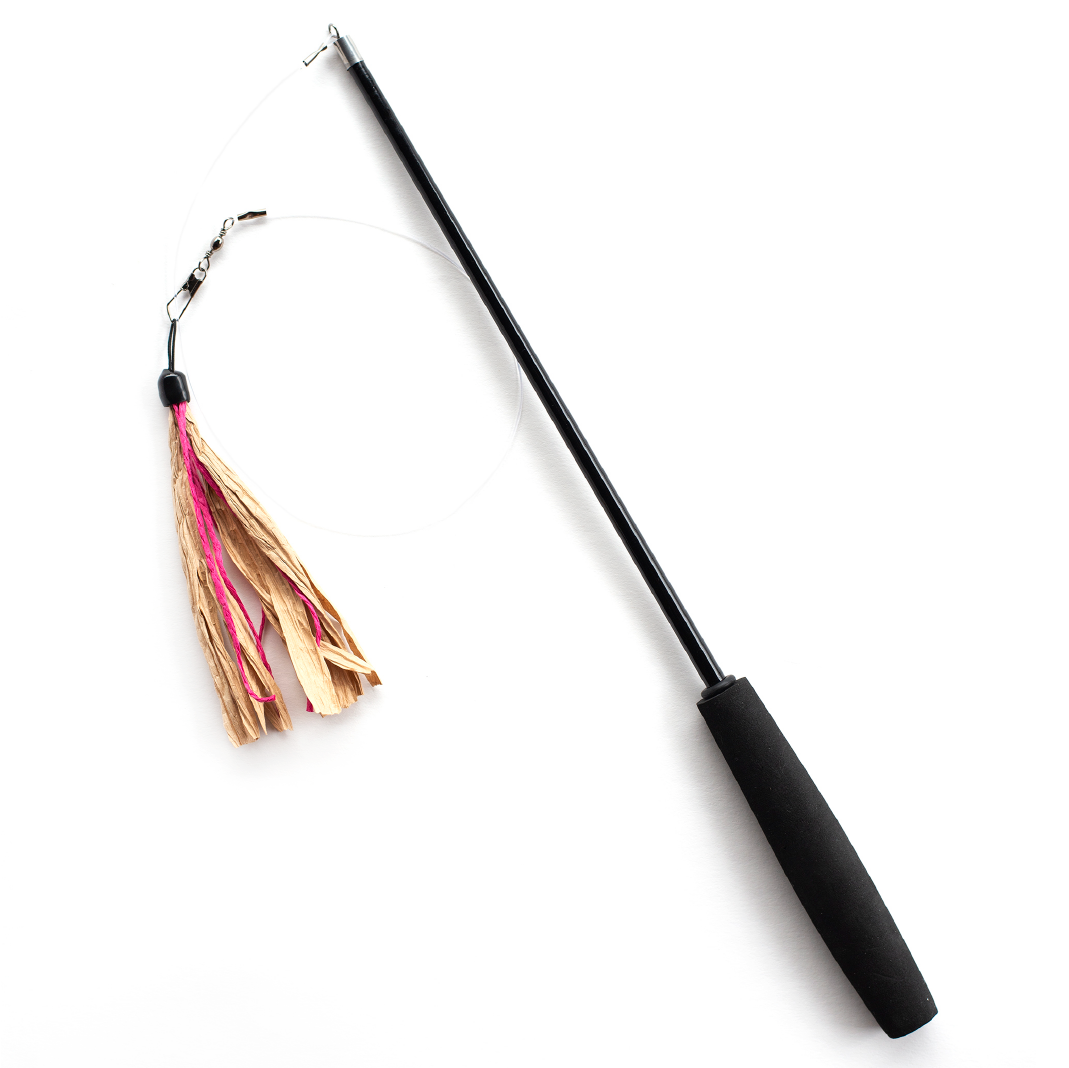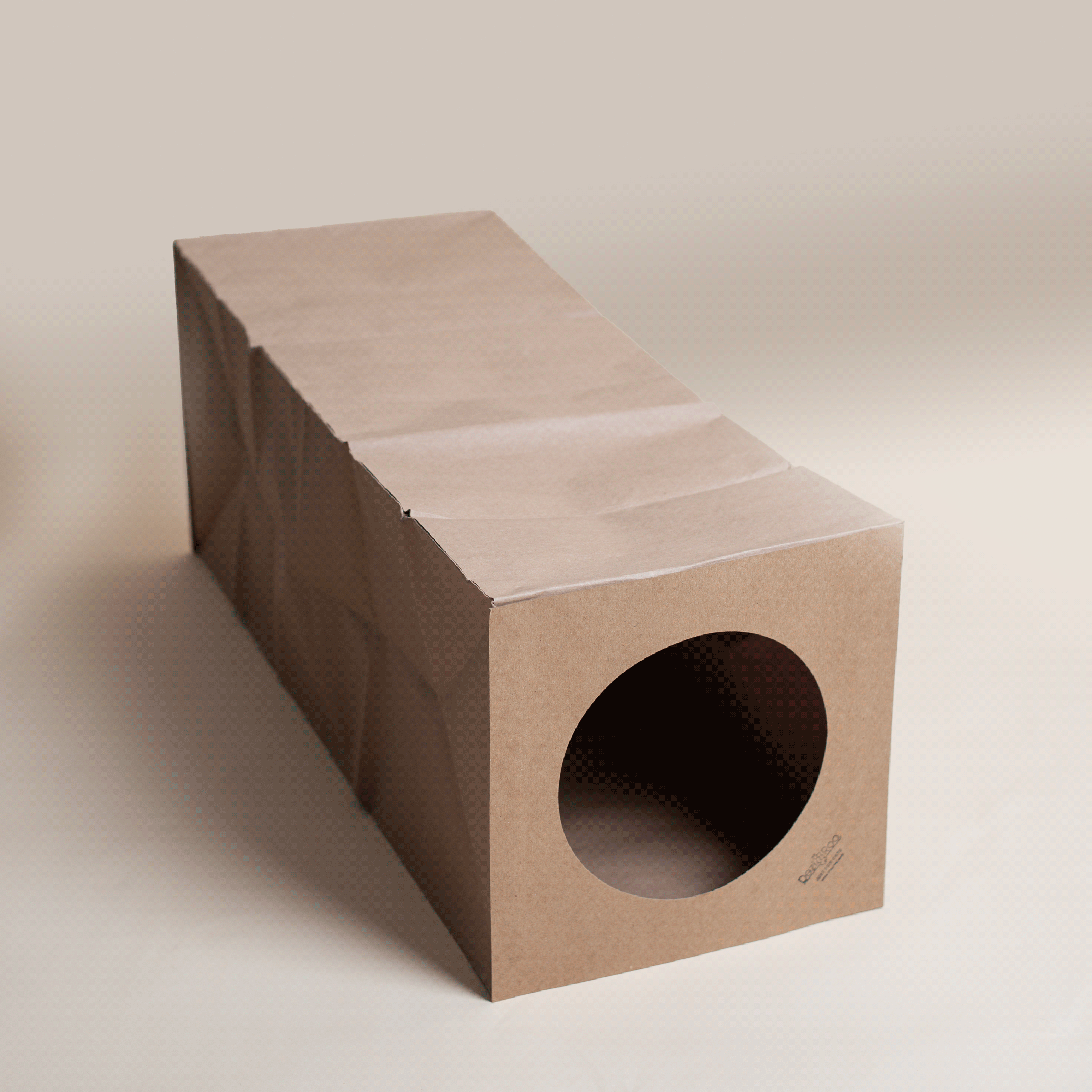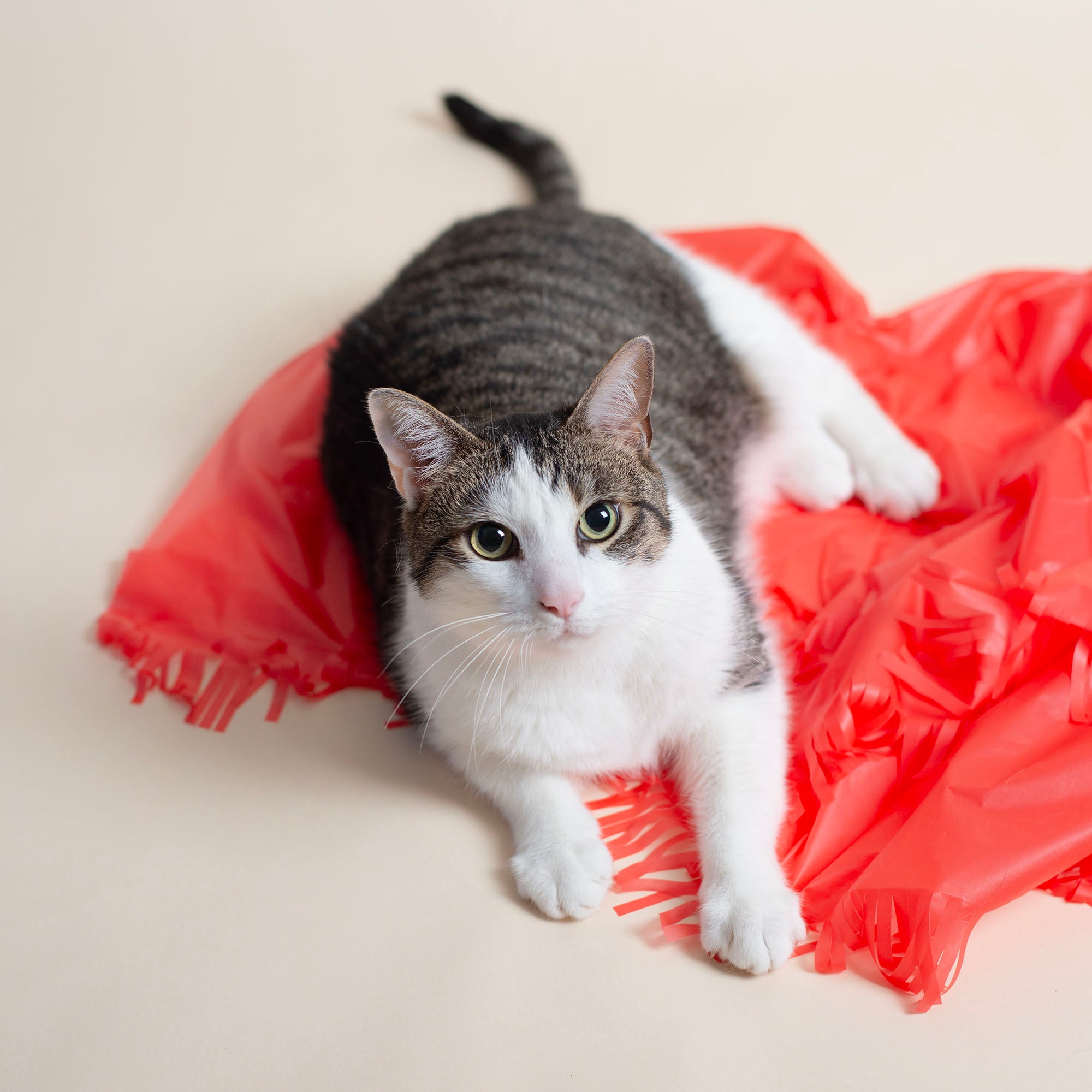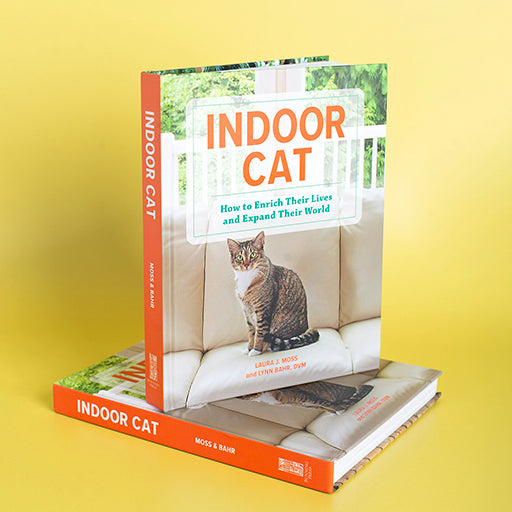What's Worse Than Having Ten Thousand Spoons When All You Need Is a Knife? Stress.
Let’s be for real, you most likely have a lot going on. Maybe not as much as some Coldplay concert go-ers, but let's not minimize your to-do's. Between your work schedule, hitting 10K steps a day, balancing time spent at home and time spent socializing, laundry, protein goals and everything else the world throws at us, it's no surprise that nearly 77% of people report feeling physical symptoms caused by stress. Like your shoulders are up to your ears, headaches galore, fatigue, and trouble sleeping. And chronic stress? Pfft. That’s been linked to everything from heart disease to a weakened immune system. Yeesh.

Here's the kicker – us humans aren't the only ones who feel the pressure. Our cats get stressed too (!!!) and it can take a toll on their health big time. But unlike us, our whiskered bbs can’t vent about it or schedule a self-care day, so it’s up to us to notice the signs and help them manage. Learning how to spot stress in your cat and what to do about it can make a huge difference in their overall well-being—and yours, too.
9 Common Causes of Stress in Cats
1. Environmental Changes: Moving to a new home, introducing new pets, roomies or having a baby
2. Routine Changes: Changes in daily routines like different feeding times or a new work schedule
3. Loud Noises: Thunderstorms, fireworks, construction, and even loud household appliances (looking at you Mr. Vacuum) can be frightening
4. Busy Households: Frequent visitors, parties, or a generally hectic household environment
5. Owners Who Travel: Cats can become anxious when left alone for extended periods or if their owners come and go frequently
6. Presence of Outdoor Cats: Seeing or smelling outdoor cats near or on their turf
7. Tension in the Household: Cats are sensitive to their owners’ emotions and can become stressed if there is tension, arguing, or stress within the household
8. Lack of Stimulation: Boredom from the same thing ever day, aka lack of mental and physical stimulation
9. Health Issues: Illness or pain
Signs of Stress in Cats
- Behavioral Changes: Hiding, aggression, or more frequent meows
-
Lack of Play: Not engaging in play can be a sign of boredom, depression, or stress. If your cat is typically playful and suddenly shows no interest in toys or interactive activities, it might indicate a deeper issue
- Appetite Changes: Loss of appetite or gobbling up everything in sight
- Grooming Changes: Over-grooming or neglecting grooming
- Litter Box Issues: Avoiding the litter box or having accidents outside it
Fun fact: On the topic of lack of play, veterinarian and Ohio State University professor Dr. Tony Buffington is the guy you can thank for establishing environmental enrichment as an effective remedy (and preventative measure) for stress-related health conditions.
Think Your Cat Is Stressin'? Start Here:
Create a Safe Space: Give your cat access to a quiet, comfortable place to retreat to when they feel stressed. A cozy bed or a quiet corner with their favorite blanket can work wonders.
• Try: placing a soft bed or an empty box with a towel in a quiet and dark spot for them to retreat to. A Hide and Sneak tunnel is a quick way to give your cat a cozy spot to feel secure and safe.
Maintain a Consistent Routine: Try to feed, play, and interact with your cat at the same times each day. Predictability helps reduce anxiety.
Provide Mental and Physical Stimulation: Regular playtime helps reduce stress and provides much-needed exercise. Use toys that mimic natural prey behavior to keep your cat engaged.
• Try: Our Squid Wiggly Wand toy is a favorite among Dezi & Roo cats because of the way it moves on the line to catch their attention, chase and catch.
Scent Enrichment: Cats have an incredible sense of smell, and new scents can be both stimulating and soothing. Introducing cat attractants like catnip or silver vine can provide a calming effect.
• Try: Sprinkle some Cloud Nine Silver Vine on your cat’s favorite toy or scratching post for an instant stress reliever.
Interactive Play: Spend quality time playing with your cat. This not only strengthens your bond but also helps expend excess energy that can contribute to stress.
• Try: The Magic Carpet is great for interactive play and allows your cat to engage in stalking and pouncing, mimicking natural hunting behaviors.
Environmental Enrichment: Enrich your cat’s environment with vertical spaces like cat trees, shelves, and perches. This allows them to climb, explore, and feel more in control of their surroundings.
• Try: Create an exciting environment by incorporating various toys and interactive elements to keep your cat engaged.
Regular Health Check-ups: Regular visits to the vet can help catch any health issues early, reducing stress related to illness or pain.
Positive Reinforcement:
Use positive reinforcement to encourage desired behaviors and create a stress-free environment. Treats, praise, and affection go a long way in making your cat feel secure.
• Try: Reward your cat with their favorite treats or a sprinkle of silver vine after play sessions.
It might be absolutely incomprehensible to think your cat – who doesn't have to worry about food, shelter, safety, love and acceptance – could be remotely stressed but that's applying human logic to what is, respectfully, an adorable yet not-human creature. So the stress they experience might look a little different than the kind of stress than us humans experience. But managing it is no less important. Just like when you put on gloves and go to town on the heavy bag after work, they need an outlet for their stress and anxiety. And now that you know potential causes of stress, what to look for and a starting point of actions you can take, you can help your feline friend lead a happier, even more relaxed life.
image credits: reine jalloul x dupe, alyssa sumption x dupe, @crumpetandcrouton x ig










